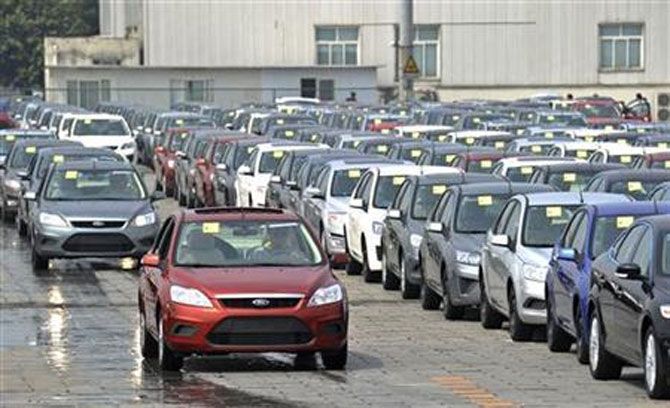Touted as one of the biggest taxation reforms in India, GST will lead to consolidation of multiple indirect taxes

The automotive sector is seeking Budget 2015-16 announce a commitment on rolling out a goods and services tax (GST) in the coming financial year, as many hope the new tax regime will reduce and simplify taxes.
Touted as one of the biggest taxation reforms in India, GST will lead to consolidation of multiple indirect taxes such as central excise, service tax and value-added tax (VAT), as well as other levies such as the National Calamity Contingent Duty (NCCD), auto cess, entry tax and octroi. The sector expects following the implementation of GST, there will be a cut of 7-17 per cent in the upfront cost of automobiles. Mid-sized sedans and luxury cars will benefit the most. And, fully imported cars will become cheaper, as customs duty, in lieu of countervailing duties and special additional duty, will be subsumed in GST.
Budget 2015: Complete Coverage
Amit Kumar Sarkar, partner, Grant Thornton India LLP, said, “In the present environment, automobiles manufactured and sold in India are liable to excise duty (along with NCCD and applicable cess) ranging from 14 per cent to 32 per cent and VAT of 13-15 per cent, resulting in a total indirect tax cost of 27-47 per cent of the assessable value of cars. In the proposed dual GST structure, if it is in line with current propositions — the CGST (central GST) and SGST (state GST) range from 20 per cent to 30 per cent, there will be an upfront reduction of 7-17 per cent in the cost of automobiles.”
After the expiry of excise duty concessions at the end of December, prices of all cars jumped Rs 10,000-150,000. This has hit demand. Sports utility vehicles, termed fuel-guzzlers, have been hit the most, as this is one of the most heavily taxed segments.
Pawan Goenka, executive director, Mahindra & Mahindra, said, “The industry is looking for a clear statement on the timeline for GST (roll-out)…Within GST, there are some concerns about the one per cent inter-state trading which is bad; we hope it doesn’t happen. Specifically for the auto industry, I don’t expect an overall decline in excise duty, but I hope the SUV (sports utility vehicle) tax goes away. (I am) certainly counting on this Budget for the electric vehicle (incentive).”
Budget 2015: Complete Coverage
The downturn in the sector has also hit the trucks and buss segment. Major players in this segment, such as Tata Motors and Ashok Leyland, are hoping a GST roll-out will boost consumer sentiment.
Gopal Mahadevan, chief financial officer of Ashok Leyland, said, “Now, the economy is on the cusp of growth. The government has been talking about an infra push but the investment rate has been coming down. It is important that these numbers start going up. The most important thing is that a date is announced for the GST roll-out. Now, there are multiple layers of tax --- VAT, excise, service and sales tax; with the roll-out, this will hopefully be resolved.”
“GST will help the auto sector open avenues for more efficient availing of input credits and remove current inefficiencies in the supply chain. The proposed dual structure of GST will result in a simplified and reduced level of statutory compliance and create a level playing field with international markets on account of a reduction in prices. Businesses need to gear themselves up to align their systems and processes for a seamless transition to the GST regime,” said Sarkar.






 © 2025 Rediff.com -
© 2025 Rediff.com -